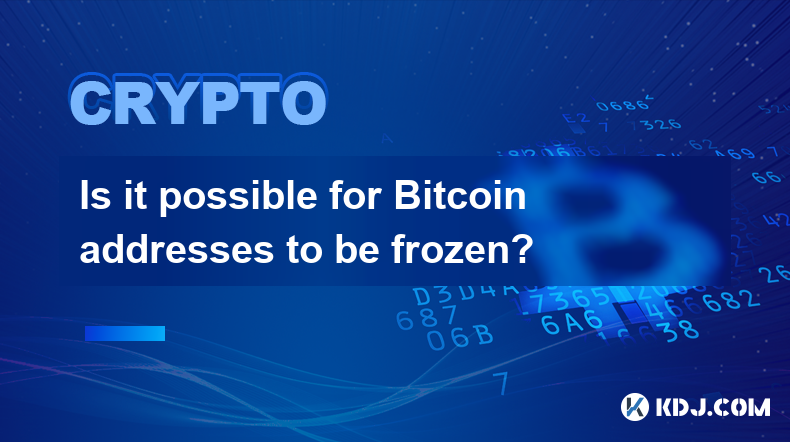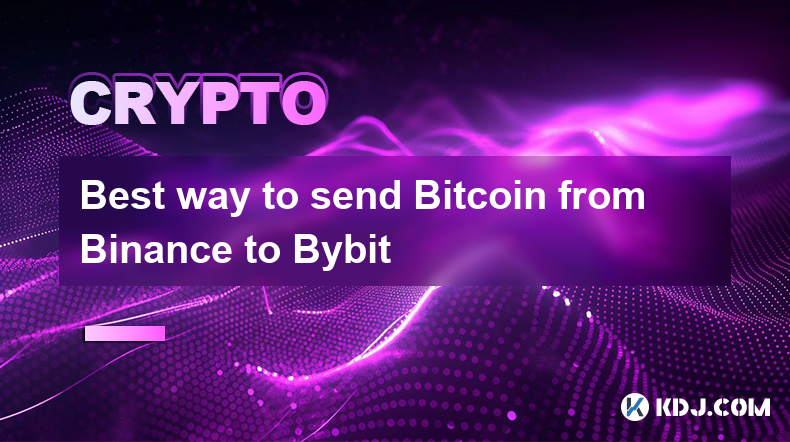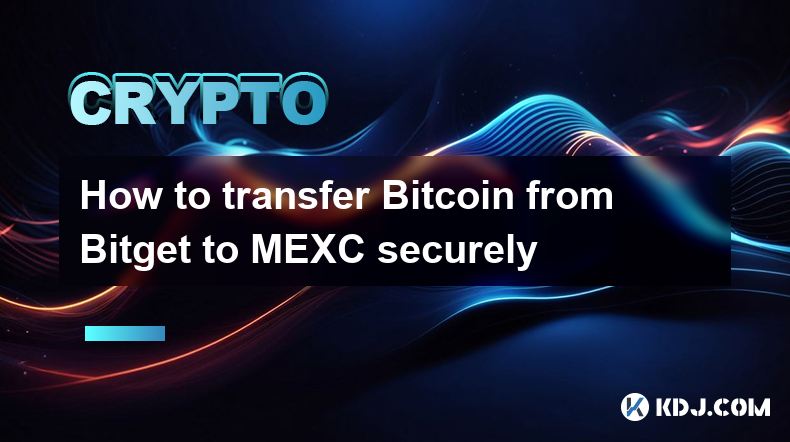-
 Bitcoin
Bitcoin $81,973.5211
-3.14% -
 Ethereum
Ethereum $1,771.8221
-4.70% -
 Tether USDt
Tether USDt $0.9996
-0.04% -
 XRP
XRP $2.0020
-4.93% -
 BNB
BNB $586.3762
-2.30% -
 USDC
USDC $0.9997
-0.03% -
 Solana
Solana $113.7739
-9.53% -
 Dogecoin
Dogecoin $0.1574
-7.43% -
 Cardano
Cardano $0.6244
-7.96% -
 TRON
TRON $0.2315
-2.36% -
 Toncoin
Toncoin $3.6020
-10.34% -
 UNUS SED LEO
UNUS SED LEO $9.3401
-1.03% -
 Chainlink
Chainlink $12.4356
-7.28% -
 Stellar
Stellar $0.2536
-4.73% -
 Avalanche
Avalanche $17.8372
-6.13% -
 Sui
Sui $2.2393
-7.83% -
 Shiba Inu
Shiba Inu $0.0...01195
-3.16% -
 Hedera
Hedera $0.1559
-5.48% -
 Litecoin
Litecoin $80.9170
-1.94% -
 Polkadot
Polkadot $3.8852
-4.23% -
 MANTRA
MANTRA $6.2821
-0.06% -
 Bitcoin Cash
Bitcoin Cash $298.6048
-1.78% -
 Bitget Token
Bitget Token $4.4929
-1.56% -
 Dai
Dai $0.9999
0.01% -
 Ethena USDe
Ethena USDe $0.9995
-0.03% -
 Monero
Monero $211.5827
-1.86% -
 Pi
Pi $0.5588
-16.11% -
 Hyperliquid
Hyperliquid $11.3193
-14.69% -
 Uniswap
Uniswap $5.7424
-4.67% -
 Aptos
Aptos $5.0458
-3.81%
Is it possible for Bitcoin addresses to be frozen?
Bitcoin addresses can't be directly frozen, but access to funds can be restricted through exchange cooperation, legal actions, or private key loss.
Apr 01, 2025 at 04:21 am

Bitcoin, a decentralized digital currency, operates on a public blockchain, meaning all transactions are visible and verifiable. This transparency often leads to the question: can Bitcoin addresses be frozen? The answer is nuanced and depends on several factors. While Bitcoin itself cannot be directly frozen in the way a bank account might be, various indirect methods can effectively restrict access to funds associated with a specific address.
Understanding Bitcoin Address Control
A Bitcoin address is essentially a cryptographic identifier linked to a specific private key. The private key is crucial; it's like the password that grants access to the Bitcoin held at that address. Without the private key, the Bitcoin is inaccessible. Therefore, freezing a Bitcoin address isn't about freezing the address itself, but rather about controlling or disabling access to the private key associated with it.
This highlights a key difference between Bitcoin and traditional financial systems. Banks can freeze accounts directly. With Bitcoin, the focus shifts to the individual's control over their private keys. Loss or compromise of the private key effectively freezes access to the associated funds, regardless of the address's status.
Methods of Indirectly Restricting Access
Several methods can indirectly restrict access to Bitcoin associated with a specific address, even without directly "freezing" the address:
Exchange Cooperation: If a Bitcoin address is linked to illicit activities, exchanges might freeze associated accounts. This isn't a freeze of the address itself, but rather a freeze of the ability to move Bitcoin from that address through their platform. The Bitcoin remains on the blockchain.
Law Enforcement Actions: Law enforcement agencies can seize or control private keys through court orders or other legal processes. This effectively gives them control over the Bitcoin associated with a specific address. This is not a technological freeze, but a legal one.
Private Key Loss or Theft: This is perhaps the most common way access to Bitcoin is lost. If someone loses their private key, or it's stolen, they cannot access the funds associated with the address, effectively freezing the funds. This isn't a freeze imposed by an external entity, but a self-imposed one.
Compromised Wallets: Malicious software or vulnerabilities in a software wallet could allow attackers to steal private keys, rendering the Bitcoin inaccessible to the legitimate owner. Again, this is not a direct freezing of the address but a loss of control over the associated funds.
Third-Party Custodian Actions: If a user stores their Bitcoin on a centralized exchange or custodial service, the platform can restrict withdrawals or access to funds. This is not a blockchain-level freeze, but a restriction imposed by the custodian.
The Decentralized Nature of Bitcoin
The decentralized nature of Bitcoin is a key factor here. There is no central authority that can directly freeze a Bitcoin address. Any restrictions are indirect and rely on external factors such as legal action, exchange policies, or the user's own actions (or lack thereof). The blockchain itself remains immutable; the transactions are recorded permanently. However, access to those funds can be effectively blocked through various means.
The immutability of the blockchain is crucial to understand. Even if access to an address is restricted, the Bitcoin remains on the blockchain, and its history is permanently recorded. This transparency is a double-edged sword; it allows for tracking and tracing of transactions but also makes it difficult to completely erase or hide activity.
The Role of Private Keys
The private key is paramount. It's the sole means of controlling the Bitcoin associated with an address. Without it, the Bitcoin is effectively inaccessible, regardless of any external attempts to freeze the address. Securely storing and managing private keys is crucial for maintaining control over one's Bitcoin. Hardware wallets and strong password practices are essential security measures.
This underscores the responsibility of individual users to protect their private keys. Negligence or inadequate security measures can lead to the loss of funds, effectively freezing access even without any external intervention. The burden of security rests primarily with the individual Bitcoin holder.
Legal and Regulatory Implications
Governments and regulatory bodies are grappling with the implications of Bitcoin's decentralized nature. While they may not be able to directly freeze Bitcoin addresses, they can pursue legal actions to seize assets associated with them. This often involves obtaining court orders to compel cooperation from exchanges or individuals holding the relevant private keys.
The legal landscape surrounding Bitcoin is still evolving. Jurisdictions differ in their approaches to regulating cryptocurrencies, and the effectiveness of legal actions to freeze or seize Bitcoin varies accordingly. This legal uncertainty adds another layer of complexity to the question of freezing Bitcoin addresses.
Common Questions and Answers
Q: Can a government directly freeze a Bitcoin address?
A: No, a government cannot directly freeze a Bitcoin address in the same way it can freeze a bank account. However, they can pursue legal actions to seize assets associated with an address by obtaining control of the private key.
Q: If an exchange freezes my Bitcoin, is the address frozen?
A: No, the Bitcoin address itself isn't frozen. The exchange is only restricting your access to the Bitcoin through their platform. The Bitcoin remains on the blockchain.
Q: What happens if I lose my private key?
A: If you lose your private key, you lose access to the Bitcoin associated with the address. It's effectively frozen, although the Bitcoin remains on the blockchain.
Q: Can a hacker freeze my Bitcoin address?
A: A hacker cannot freeze your Bitcoin address directly. However, they could steal your private key, giving them control over your Bitcoin and effectively freezing your access to it.
Q: Is there a way to permanently delete a Bitcoin address?
A: You cannot delete a Bitcoin address. Transactions associated with it will always remain on the blockchain. You can, however, generate a new address and move your Bitcoin to it.
Disclaimer:info@kdj.com
The information provided is not trading advice. kdj.com does not assume any responsibility for any investments made based on the information provided in this article. Cryptocurrencies are highly volatile and it is highly recommended that you invest with caution after thorough research!
If you believe that the content used on this website infringes your copyright, please contact us immediately (info@kdj.com) and we will delete it promptly.
- Why XRP Investors Are Rushing to ExoraPad Presale
- 2025-04-03 21:45:12
- Polkadot (CRYPTO: DOT) cryptocurrency isn't getting any market love these days
- 2025-04-03 21:45:12
- Despite Launching the RLUSD Stablecoin, XRP Price Dips as Trump's Tariffs Trigger Market Turmoil
- 2025-04-03 21:40:11
- Ripple Has Once Again Unlocked a Massive 1 Billion XRP
- 2025-04-03 21:40:11
- Bitcoin price crashes to $80k as Trump announces tariffs on 50+ countries
- 2025-04-03 21:35:12
- Prominent crypto analyst sparks excitement with bold forecasts for Ethereum and Ripple
- 2025-04-03 21:35:12
Related knowledge

BTC's top ten global trading platforms
Apr 03,2025 at 10:42am
Top 10 Bitcoin trading platforms in the world1. OKX (Ou Yi):✅ Advantages: Have the world's largest compliance license to ensure fund security Provides the best contract trading depth and supports U- and coin-price trading Low transaction fees, Maker can enjoy negative rates (refund transaction fees) Applicable groups: short-term trading experts, con...

How to safely transfer Bitcoin from KuCoin to Huobi
Apr 02,2025 at 04:49pm
Transferring Bitcoin from one exchange to another, such as from KuCoin to Huobi, is a common practice among crypto enthusiasts. However, ensuring the safety and security of these transactions is paramount. This guide will walk you through the step-by-step process of safely transferring Bitcoin from KuCoin to Huobi, highlighting essential security measur...

How to send Bitcoin from Gate.io to Bitfinex
Apr 03,2025 at 07:35am
Sending Bitcoin from Gate.io to Bitfinex involves a few straightforward steps. First, you need to ensure that you have a verified account on both exchanges. Once verified, you'll need to generate a Bitcoin deposit address on Bitfinex. After obtaining the address, you can initiate a withdrawal from Gate.io to the Bitfinex address. It's crucial to double-...

Tutorial to withdraw Bitcoin from BitMEX to Crypto.com
Apr 03,2025 at 08:56am
Withdrawing Bitcoin from BitMEX to Crypto.com is a straightforward process, but it requires careful attention to detail to ensure the funds are transferred safely and efficiently. Before you start, ensure that you have an active account on both platforms, and that you have completed the necessary verification processes. This tutorial will guide you thro...

Best way to send Bitcoin from Binance to Bybit
Apr 02,2025 at 09:36pm
Sending Bitcoin from Binance to Bybit is a straightforward process, but it's essential to follow the steps carefully to ensure a smooth and secure transaction. This article will guide you through the best practices for transferring Bitcoin between these two popular cryptocurrency exchanges. We'll cover the necessary preparations, the step-by-step proces...

How to transfer Bitcoin from Bitget to MEXC securely
Apr 02,2025 at 06:07pm
Transferring Bitcoin from one exchange to another, such as from Bitget to MEXC, requires careful attention to detail to ensure the process is secure and successful. This article will guide you through the steps needed to complete this transfer safely, highlighting important considerations and best practices to protect your assets. By following these ins...

BTC's top ten global trading platforms
Apr 03,2025 at 10:42am
Top 10 Bitcoin trading platforms in the world1. OKX (Ou Yi):✅ Advantages: Have the world's largest compliance license to ensure fund security Provides the best contract trading depth and supports U- and coin-price trading Low transaction fees, Maker can enjoy negative rates (refund transaction fees) Applicable groups: short-term trading experts, con...

How to safely transfer Bitcoin from KuCoin to Huobi
Apr 02,2025 at 04:49pm
Transferring Bitcoin from one exchange to another, such as from KuCoin to Huobi, is a common practice among crypto enthusiasts. However, ensuring the safety and security of these transactions is paramount. This guide will walk you through the step-by-step process of safely transferring Bitcoin from KuCoin to Huobi, highlighting essential security measur...

How to send Bitcoin from Gate.io to Bitfinex
Apr 03,2025 at 07:35am
Sending Bitcoin from Gate.io to Bitfinex involves a few straightforward steps. First, you need to ensure that you have a verified account on both exchanges. Once verified, you'll need to generate a Bitcoin deposit address on Bitfinex. After obtaining the address, you can initiate a withdrawal from Gate.io to the Bitfinex address. It's crucial to double-...

Tutorial to withdraw Bitcoin from BitMEX to Crypto.com
Apr 03,2025 at 08:56am
Withdrawing Bitcoin from BitMEX to Crypto.com is a straightforward process, but it requires careful attention to detail to ensure the funds are transferred safely and efficiently. Before you start, ensure that you have an active account on both platforms, and that you have completed the necessary verification processes. This tutorial will guide you thro...

Best way to send Bitcoin from Binance to Bybit
Apr 02,2025 at 09:36pm
Sending Bitcoin from Binance to Bybit is a straightforward process, but it's essential to follow the steps carefully to ensure a smooth and secure transaction. This article will guide you through the best practices for transferring Bitcoin between these two popular cryptocurrency exchanges. We'll cover the necessary preparations, the step-by-step proces...

How to transfer Bitcoin from Bitget to MEXC securely
Apr 02,2025 at 06:07pm
Transferring Bitcoin from one exchange to another, such as from Bitget to MEXC, requires careful attention to detail to ensure the process is secure and successful. This article will guide you through the steps needed to complete this transfer safely, highlighting important considerations and best practices to protect your assets. By following these ins...
See all articles























































































